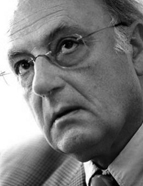

He contributed to several publications, including Vértice , where he collaborated with prominent figures in Portuguese culture, such as Júlio Pomar, António José Saraiva, and Maria Lamas, as well as to Seara Nova . Early in his contributions to Seara Nova , in the commemorative issue for the 50th anniversary of the Republic (No. 1378-79-80, Sept/Oct 1960), he published an article titled José Félix Henriques Nogueira – O primeiro republicano português [José Félix Henriques Nogueira – The First Portuguese Republican], following articles by António José Saraiva ( República desconhecida [The Unknown Republic]) and Maria Lamas ( Primeiras leis da República e a Mulher [The Republic’s Early Laws and Women]). In 1961, he began publishing an extensive essay in the same journal titled Tradição e revolução [Tradition and Revolution], based on his analysis of Mouzinho da Silveira. This essay continued his exploration of 19th-century Portuguese history, returning to the subject of his undergraduate thesis. Also in Seara Nova , he reviewed historiographical works by authors such as Vítor Sá, Jacinto Baptista, and Flausino Torres. For the Diário de Lisboa , he wrote a series of articles on António Rodrigues Sampaio, which earned him an award in 1962 from the Associação dos Homens de Letras do Porto [Association of Men of Letters of Porto]. In 1961, alongside his intensive journalistic work, he also taught in technical education. However, in December of that year, he was arrested by the political police and detained at Aljube, where he was tortured and held incommunicado for two months. Upon his release, he was prohibited from working in his profession. The following year, the Fundação Calouste Gulbenkian [Calouste Gulbenkian Foundation] awarded him a three-year research grant to continue his studies on 19th-century Portuguese history. His cultural activities expanded in various ways, particularly in disseminating research produced within academia. His role as the founder and later director of the Centro de Estudos do Século XIX [19th-Century Studies Centre] of the Grémio Literário [Literary Guild] (1969–1974) exemplifies this commitment.
This work is financed by national funds through FCT - Foundation for Science and Technology, I.P, in the scope of the projects UIDB/04311/2020 and UIDP/04311/2020.
